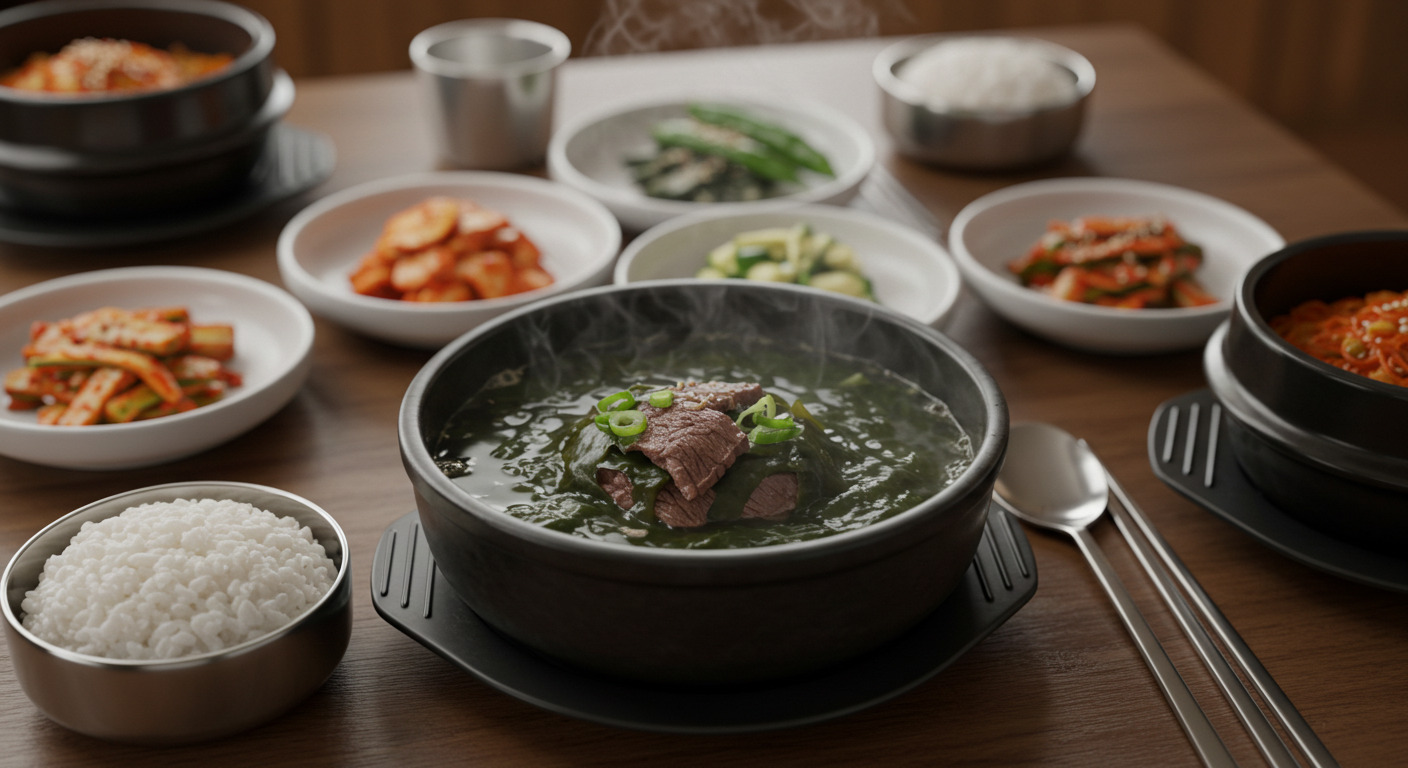Introduction – Soup for Breakfast on Your Birthday?
On my first birthday in Korea, my roommate placed a steaming bowl of soup in front of me.
A clear, dark-green broth with floating strands of seaweed. I was surprised by its unique flavor and texture, but more than anything, I felt comforted.
I soon learned that in Korean birthday culture, eating seaweed soup is not just tradition—it’s a ritual rooted in appreciation for life itself.
First Experience – Culture Shock in a Bowl
“Why seaweed soup on your birthday?” I asked, genuinely puzzled.
My friend smiled and replied, “It’s what moms eat after giving birth. It’s to honor them—and your life.”
That explanation struck me deeply.
The seaweed soup tradition wasn’t about taste. It was a symbolic gesture—thanking mothers, acknowledging pain and care, and celebrating survival.
Each bowl contained layers of meaning woven into Korean family values.
Learning and Blending In – I Tried Making It
Later, I decided to make miyeokguk for a Korean friend’s birthday.
I soaked the seaweed, sautéed beef, added soy sauce, and simmered it slowly. As the kitchen filled with the rich aroma, I thought of my own mother’s home cooking.
Though it wasn’t perfect, my friend teared up and said, “I’m truly touched.”
At that moment, I finally understood jeong in Korean food—the love, care, and intention behind every dish.
A Moment of Connection – Finding Jeong in a Bowl
I never knew that a bowl of soup could make someone cry—until Korea.
There was something deeply moving in the act of preparing and sharing seaweed soup:
A mother’s love, a friend’s effort, a message that says, “Thank you for being here.”
Korean birthday culture goes beyond cake and candles. It celebrates life, endurance, and connection.
That is where jeong, the deep emotional bond, lives—between spoonfuls of soup.
Conclusion – Missing That Warm Sip
Now that I’ve returned home, I often think back to that birthday morning in Korea.
The warmth of the soup, the depth of meaning in a simple tradition, and the people who shared it with me.
I still make seaweed soup on my birthday—both for myself and for those I love.
To me, seaweed soup is no longer just a Korean dish. It’s a vessel of culture, care, and a beautifully subtle way to say “I’m glad you’re here.”
Respect and hierarchy are also reflected in meals:
My Encounter with Korean Age Culture
